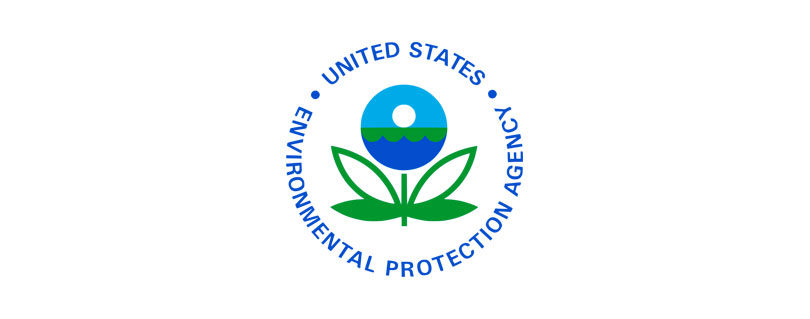California man arrested for smuggling potent greenhouse gases into the United States
Publilshed by the U.S. Environmental Protection Agency (EPA)
WASHINGTON – Today, March 4, 2024, Michael Hart of San Diego was arrested and charged with smuggling greenhouse gases into the United States from Mexico and then selling them for profit, in violation of regulations intended to curb the use of greenhouse gases and slow climate change.
This is the first prosecution in the United States to include charges related to the American Innovation and Manufacturing Act of 2020 (AIM Act). The AIM Act prohibits the importation of hydrofluorocarbons (HFCs), commonly used as refrigerants, without allowances issued by the U.S. Environmental Protection Agency.
“The illegal smuggling of hydrofluorocarbons, a highly potent greenhouse gas, undermines international efforts to combat climate change under the Kigali Amendment to the Montreal Protocol,” said David M. Uhlmann, EPA Assistant Administrator for the Office of Enforcement and Compliance Assurance. “Anyone who seeks to profit from illegal actions that worsen climate change must be held accountable. This arrest highlights the significance of EPA’s climate enforcement initiative and our efforts to prevent refrigerants that are climate super pollutants from illegally entering the United States.”
“It is illegal to import certain refrigerants into the United States because of their documented and significantly greater contribution to climate change,” said Assistant Attorney General Todd Kim of the Justice Department’s Environment and Natural Resources Division. “We are committed to enforcing the AIM Act and other laws that seek to prevent environmental harm.”
“This office is at the forefront of environmental prosecutions, and today is a significant milestone for our country,” said U.S. Attorney Tara McGrath. “This is the first time the Department of Justice is prosecuting someone for illegally importing greenhouse gases, and it will not be the last. We are using every means possible to protect our planet from the harm caused by toxic pollutants, including bringing criminal charges.”
According to the EPA, HFCs are potent greenhouse gases that cause climate change and are used in applications such as refrigeration, air-conditioning, building foam insulation, fire extinguishing systems, and aerosols. The global warming potential of an HFC can be hundreds to thousands of times more potent than carbon dioxide. The use of HFCs has been rapidly increasing worldwide due to the global phaseout of ozone-depleting substances and increased demand for refrigeration and air conditioning. The 2016 Kigali Amendment to the Montreal Protocol on Substances that Deplete the Ozone Layer is an international agreement to phase down the production and consumption of HFCs by 80-85 percent by 2047.
The indictment alleges that Hart purchased refrigerants in Mexico and smuggled them into the United States in his vehicle, concealed under a tarp and tools. According to the indictment, Hart posted the refrigerants for sale on OfferUp, Facebook Marketplace, and other sites, and sold them for a profit. In addition to greenhouse gases, the indictment alleges Hart imported HCFC-22, an ozone-depleting substance regulated under the Clean Air Act.
The Montreal Protocol on Substances that Deplete the Ozone Layer (Montreal Protocol) is a treaty adopted in 1987 and ratified by virtually every country. The Montreal Protocol required the gradual phase out of ozone-depleting substances, with different timetables for developed countries like the United States and developing countries like Mexico. In the United States, the Montreal Protocol is being implemented under the Clean Air Act: Stratospheric Ozone Protection, which identifies HCFC-22 as a regulated ozone-depleting substance. Before 2020, EPA regulations that governed ozone-depleting substances made it illegal for anyone to import a regulated ozone-depleting substance in an amount exceeding that individual’s consumption allowance, subject to certain exceptions. Consumption allowances for HCFC-22 were eliminated on Jan. 1, 2020, and it became illegal to import HCFC-22 for any purpose other than for use in a process resulting in their transformation or their destruction.
The Kigali Amendment to the Montreal Protocol is designed to phase down the production and consumption of greenhouse gases such as HFCs, which are commonly used alternatives to ozone-depleting substances that are already controlled under the Montreal Protocol and the Clean Air Act. The AIM Act authorized the EPA to phase down the production and consumption of HFCs in a stepwise manner by 85% by 2036. As part of the AIM Act, Congress added an additional list of regulated substances, which include HFC-32, HFC-125, HFC-134a, and HFC-143a. Refrigerants marketed as HFC- or R-404A, -407A, -407C and -410A contain these regulated substances. The listed HFCs are some of the most commonly used HFCs and all are saturated, meaning they have only a single bond between their atoms and therefore have longer atmospheric lifetimes than other substitutes such as hydrofluoroolefins. Beginning on Jan. 1, 2022, EPA regulations prohibit any person from importing bulk regulated HFCs, except by expending, at the time of import, a consumption or application-specific allowance issued by the EPA. No person may sell or distribute, or offer for sale or distribution, any regulated HFC that was imported illegally.
Information on EPA’s enforcement efforts to address climate change and the 2023 EPA Climate Enforcement and Compliance Strategy memorandum are available on the agency’s Addressing Climate Change in Enforcement and Compliance Assurance web page.
Read the full article at: https://www.epa.gov/newsreleases/california-man-arrested-smuggling-potent-greenhouse-gases-united-states


